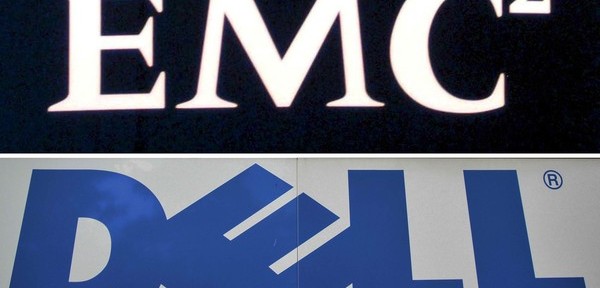Wow this is interesting. Dell is buying EMC for $67 billion dollars. So now we have Dell, EMC and RSA all under the same roof. I wonder how this will impact their security product line. Below is a post from http://money.cnn.com found HERE. I also received a email about this from EMC shown below in the quotes.
Dear Valued EMC Customer,
I am reaching out to inform you of our announcement this morning that Michael S. Dell, MSD Partners, and Silver Lake are leading a transaction to combine Dell and EMC, which will create the world’s largest privately-controlled, end-to-end technology company. This new structure will further provide us with the flexibility and agility to focus 100 percent on you, our customers, and invest for long-term results to deliver best-in-class integrated solutions. The combined company will continue our unyielding dedication to customers worldwide, while also creating a new company to better navigate and innovate in a new era in IT. We will provide updates to you as we move forward with bringing our two companies together. In the meantime, I invite you to visit our microsite, where you can find current information regarding this news.
Following completion of the transaction, Michael will lead the combined company as chairman and chief executive officer, and I will continue as chairman and chief executive officer of EMC until the transaction closes. We believe this transaction will create a new leader in the most critical areas of the $2 trillion information technology market, including Digital Transformation, Software Defined Data Center, Hybrid Cloud, Converged Infrastructure, Mobile and Security.
Joseph M. Tucci
Joseph M. Tucci
Chairman and Chief Executive Officer, EMC
In the biggest tech deal of all time, Dell announced Monday that it has agreed to buy corporate software, storage and security giant EMC for $67 billion.
The deal completes Dell’s transformation from a consumer PC business to an IT solutions provider for companies. That process began when Dell bought Perot Systems for $4 billion in 2009 and went full throttle in 2013 when company founder Michael Dell took the business private.
EMC is a behemoth of a corporate IT business. It is among the largest providers of storage hardware in the world. It also makes servers and owns security company RSA, which is known for its hard-to-crack SecurID tokens. And its most prized possession is its 81% stake in VMware — the company that rules the world of virtualization software that allows businesses to run various operating systems on their devices.
“The combination of Dell and EMC creates an enterprise solutions powerhouse,” said Dell in a prepared statement. “Our new company will be exceptionally well-positioned for growth in the most strategic areas of next generation IT.”
Yet both Dell and EMC have struggled lately as new technology trends have largely passed them by (namely: the cloud).
EMC made its name selling companies storage systems for their data centers. Now, cloud companies like Amazon can store all of a company’s stuff for cheaper. It’s no longer in vogue for businesses to operate their own data centers.
Meanwhile, Dell, the world’s second-largest server maker, is facing the same conundrum. As businesses offload their file storage to Amazon (AMZN, Tech30), Google (GOOGL, Tech30) and Microsoft (MSFT, Tech30), many are letting those companies handle their email and Web serving too.
Dell in particular has struggled lately — it was the only top five server maker with falling shipments in the second quarter, according to tech consultancy Gartner.
Both companies have invested heavily in the cloud, but each has encountered a rocky transition. EMC’s stock sunk earlier this year, and it faced an activist shareholder revolt that failed to break up the company. Dell was forced to go private in a (very) leveraged buyout including large amounts of borrowing.
Dell said the company will remain private — for now. The complicated EMC deal will be financed with a significant amount of debt, while VMWare (VMW) will remain publicly-traded.
Whether the two companies will be better off together remains to be seen. But the merger certainly bucks the recent trend of large tech companies getting smaller instead of bigger.
Rival Hewlett-Packard (HPQ, Tech30), for instance, is about to split into two: a consumer PC-focused business and a corporate IT solutions business. EBay (EBAY) jettisoned PayPal earlier this year.
The EMC-Dell merger is remarkably huge. It’s nearly twice as large as the proposed $37 billion tie-up between Broadcom and Avago, the next-biggest tech merger, according to Dealogic.



